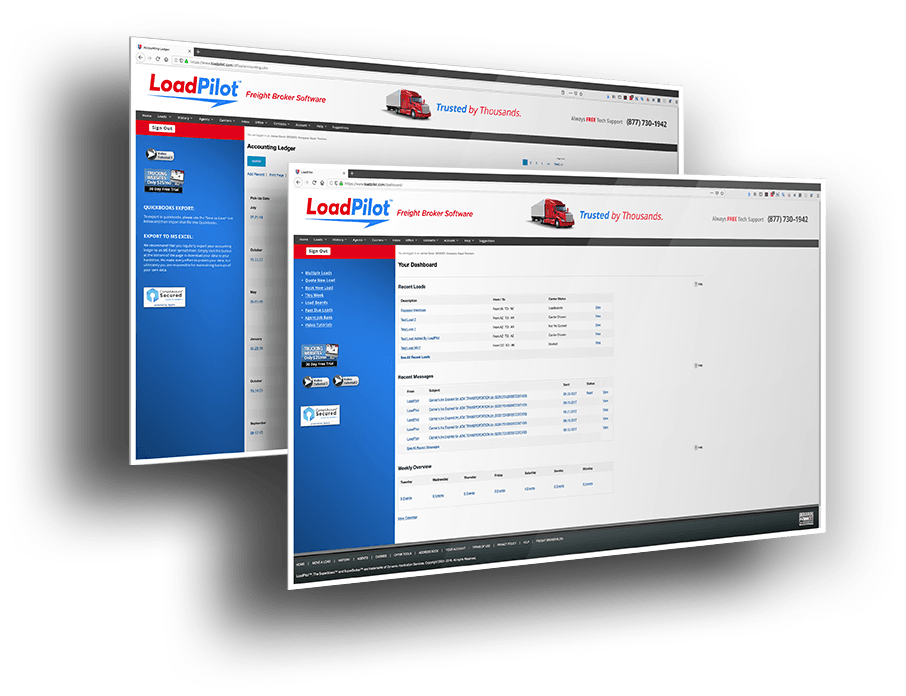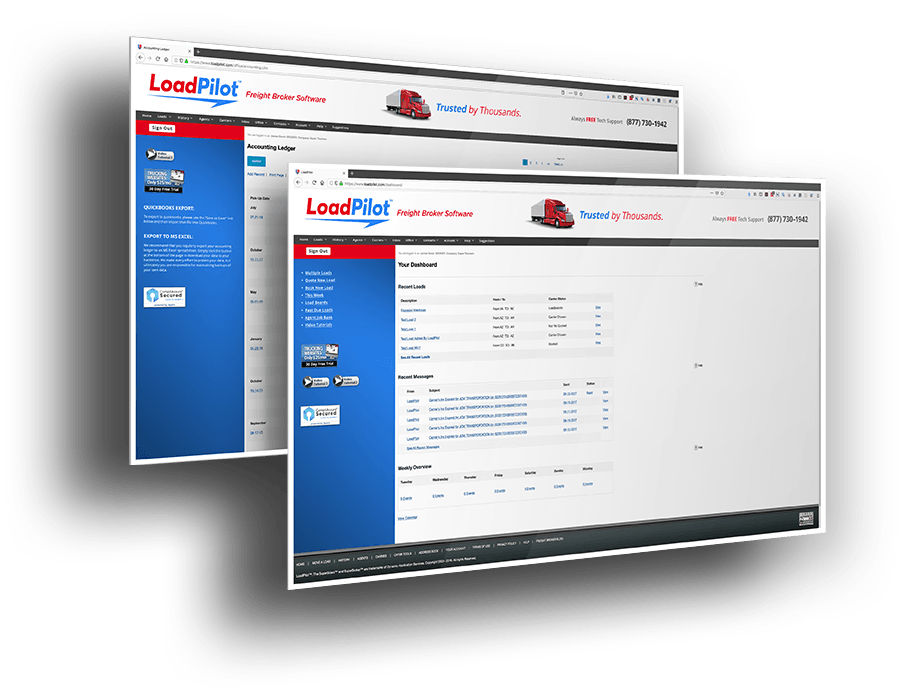In the eerie world of freight brokerage, negotiations with shippers can often feel like a journey into the unknown. With ghoulish deadlines, bone-chilling expectations, and the ever-present fear of the unknown, a freight broker’s role can be as mysterious as a haunted house on Halloween night. In this blog post, we’ll unveil the secrets of how to handle negotiations with shippers and turn them into treats instead of tricks.
- The Devil in the Details
When you step into the world of freight brokerage, you quickly realize that negotiating with shippers is akin to facing the devil himself. It’s crucial to master the art of scrutinizing the fine print in shipping contracts. Hidden within the clauses, like ghosts in the shadows, are terms that could haunt you later if not dealt with appropriately. Ensure that you are well-versed in the legal lingo, and never let the devilish details catch you off guard.
- The Haunting Haggling
Negotiating with shippers is a dance between fear and finesse. Shippers often have a host of spine-tingling demands and constraints, but as a freight broker, your goal is to find the middle ground where both parties feel like they’ve won. Remember, it’s a delicate balance, much like trying to placate the spirits of the netherworld. Sometimes, it may seem like an endless labyrinth, but persistence and tact will lead you to the treasure chest of agreement.
- The Phantom Pricing
In the frightful world of freight brokerage, pricing negotiations can feel like dealing with spectral specters. Shippers aim to get the most for the least, while you must ensure your cut is fair and competitive. The art of pricing is a spine-tingling task, where you must navigate the foggy realm of market rates, fuel costs, and ever-changing tariffs. Do your research and be prepared to defend your pricing decisions as if warding off malevolent apparitions.
- The Witching Hour of Communication
In the world of freight brokerage, effective communication is your shield against the unknown. Shippers, like witches brewing potions in the dead of night, may conjure unrealistic expectations. As a freight broker, it’s your job to cast the spell of transparency and honesty to ensure your client understands the realities of the situation. Timely updates, clear information, and a proactive approach can exorcise the ghosts of misunderstandings.
- The Ghastly Guarantees
Negotiations often involve guarantees and responsibilities. As a freight broker, you should be ready to handle the weighty obligations that come with the territory. Much like striking a Faustian bargain, you must ensure that your promises are realistic and achievable. The consequences of failing to meet your commitments can haunt you long after the negotiations are over.

Witchy Wisdom: Mastering Negotiations
From market knowledge and relationship-building to technology utilization and adaptability, these pro tips are your trusted companions on this ghostly journey, guiding you through the maze of freight brokerage with confidence and skill. Prepare to unravel the secrets of success as we delve into the professional strategies that will set you apart in this captivating, yet enigmatic, industry.
- Market Knowledge is Power: Stay informed about the latest industry trends, market rates, and economic conditions. Knowing the current market can help you negotiate from a position of strength and credibility.
- Build Strong Relationships: Developing a good rapport with your shippers can go a long way. Trust and transparency are vital in any negotiation, and strong relationships can make your interactions smoother.
- Leverage Technology: Utilize transportation management systems (TMS) and pricing software to streamline the negotiation process. These tools can provide data-driven insights and help you make more informed decisions.
- Manage Expectations: Clearly communicate the realistic expectations to your shippers. Avoid over-promising and under-delivering, as this can lead to dissatisfaction and strained relationships.
- Be Adaptable: Negotiations often require adaptability. Be prepared to pivot and find creative solutions to meet your shipper’s needs, even in the face of unexpected challenges.
- Always Have a Backup Plan: Freight brokerage can be unpredictable, much like a Halloween night. Having contingency plans in place can save the day when things take an unexpected turn.

Your Ghoulish Guide to Setting your Prices
Pricing loads for carriers is a critical aspect of freight brokerage, and it can be just as hair-raising as negotiating with shippers. To ensure you set the right rates, follow these steps:
- Understand Your Costs: Calculate all the costs associated with a specific load, including fuel, insurance, maintenance, and any other overhead expenses. This forms the foundation for your pricing strategy.
- Consider Market Rates: Research current market rates for similar loads. Several online platforms and resources can provide up-to-date information. Compare these market rates with your cost calculations.
- Factor in Profit Margins: Don’t forget to add a reasonable profit margin to your rate. Your business needs to be profitable to survive and thrive.
- Offer Competitive Rates: Pricing your loads too high can discourage carriers from working with you. On the other hand, setting rates too low may lead to lower service quality or carrier dissatisfaction. Strive for a balance that is both competitive and profitable.
- Negotiate When Necessary: Be prepared to negotiate rates with carriers. Flexibility in negotiations can help you find mutually beneficial solutions that meet both parties’ needs.
- Maintain Open Communication: Keep the lines of communication open with your carriers. Discuss pricing, payment terms, and expectations upfront to avoid surprises or disputes down the road.
- Use Technology to Your Advantage: Just as technology can help in negotiations with shippers, it can assist in pricing loads for carriers. TMS and pricing tools can help you manage your pricing strategy efficiently.
- Track Performance: Keep an eye on the performance of your carriers. If a carrier consistently delivers high-quality service and reliability, consider offering them preferential rates as an incentive for continued collaboration.
Remember that pricing loads for carriers is an ongoing process. Market conditions, fuel costs, and other variables can change, so regularly review and adjust your rates as needed to ensure you stay competitive and profitable in the ever-evolving world of freight brokerage.

Closing Incantations
Negotiating with shippers in the realm of freight brokerage may seem like a spine-chilling experience, but with the right knowledge and approach, you can turn these eerie encounters into profitable partnerships. It’s a world where the devil lurks in the details, haggling is a haunted dance, and pricing is as elusive as phantom apparitions. Effective communication and a clear understanding of responsibilities are your magical spells to ward off the ghosts of misunderstandings and failed commitments. Remember, in the spine-tingling world of freight brokerage, success depends on your ability to unmask the secrets of negotiation and turn them into treats rather than tricks. Happy Halloween and happy brokering!



